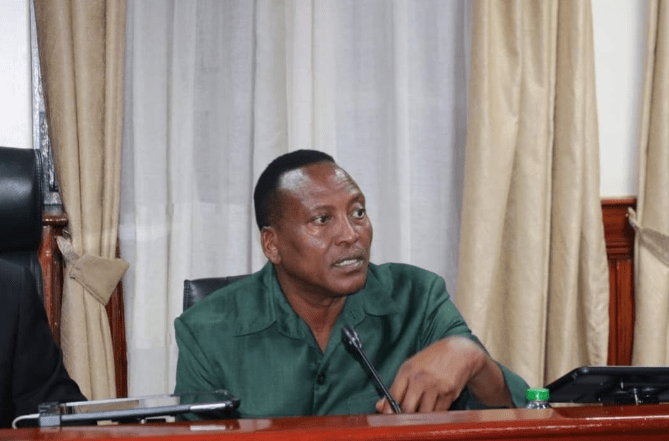Senators: CBC makes education disparities worse
By Mercy Mwai and Mathew Ndungu, December 2, 2024Learning for 1.3 million students expected to join Grade Nine next month could be in jeopardy because of poor implementation of the Competency-Based Curriculum (CBC), senators have warned.
They cited gaps in policy implementation, the curriculum, training of teachers and funding.
The matter came up when Kisii Senator Richard Onyonka raised a question on the floor of the house, claiming that the implementation of CBC had revealed significant challenges that exacerbated inequalities in the education system.
Lawmakers demanded that Education Cabinet Secretary Julius Ogamba appear before them to shed light on government preparedness for the rollout of Grade Nine.
Onyonka claimed that urban schools are better resourced than rural ones.
He said: “The CBC’s focus on projects [and] hands-on learning over core subjects, combined with the financial strains on … low-income families … has left many of the students unprepared for global competition and [this] has deepened educational disparities in our communities.”
Onyonka wanted Ogamba to shed light on measures his ministry has taken to address resource disparities in schools, re-evaluate the CBC framework and support low-income parents.
He also wanted the ministry to conduct a robust awareness campaign to familiarise parents, teachers and students about CBC requirements, assessments and the resources available.
Onyonka’s question came a few weeks after Ogamba told members of the National Assembly that only 5,052 new classrooms had been completed, against the required 16,000.
This raised questions about the government’s preparedness to implement the programme effectively.
Ogamba said at the time that 11,000 new classrooms were at various levels of completion and would be ready by December 2024.
Life skills
In the Senate, Nandi Senator Samson Cherarkey concurred with his fellow lawmakers about CBC.
He said: “I agree with the issue of CBC. It is something that was born during President Uhuru’s time and is being midwifed by President William Ruto, and he’s doing a good job of midwifing. We want to build a system that gives people life skills. You need to ensure that Grade Nine students in CBC are transiting.”
Many parents were complaining about some of the CBC requirements, said Nairobi Senator Edwin Sifuna.
Sometimes children come home with complex assignments and parents must buy some materials and equipment, said Nairobi Senator Edwin Sifuna.
“Parents are being asked to buy printers, and so on and so forth,” he said.
Teachers and the country will be judged by the kind of students CBC produces, said Bungoma Senator Wakoli Wafula.
“As a teacher, it really pains me to be churning out half-baked students. They are not critical thinkers. They think in terms of regions and have no sense of reality in them,” he said.
Teachers’ college
Meanwhile, Kenyan universities have begun initiatives to retool lecturers in tandem with the changing educational needs of students and the world.
Lecturers will be trained and labs re-engineered to reflect what is expected of them , while the curriculum will be remodelled to suit the needs of CBC students.
KCA University, for example, has established a teachers’ college dedicated to training professors and lecturers on CBC.
Universities need to start making the necessary changes as Kenya shifts to the new education system, said KCA Vice Chancellor and CEO Isaiah Wakindiki.
“We are preparing the instructors so that when the learners join university, lecturers will be well equipped,” Wakindiki said.
Speaking during KCA’s 17th graduation ceremony, Wakindiki noted that the launch of a lecturers’ retooling college was significant in addressing the need for well-prepared academic staff in the CBC era.
He also lauded the government’s recent reforms in higher education, saying they were long overdue.
Speaking to reporters at the event, newly appointed KCA Chancellor Dr Martin Oduor called on universities to align their education offerings with job market demands.
“Our goal is to equip minds with the necessary knowledge to transform the world, rather than being shaped by it,” said Oduor.
He also urged graduates to be innovative and focus on becoming job creators rather than job seekers, emphasising the transformative power of education.
Graduates who spoke to People Daily expressed confidence that they were ready to contribute to nation-building.
